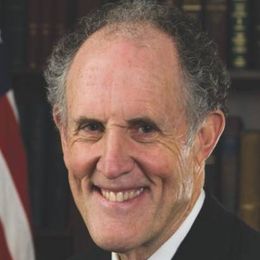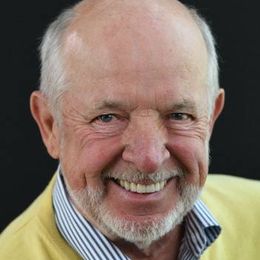Retirement Is About Much More Than Money
Financial security is important, but remember to plan for the emotional and psychological changes that arise when you stop working
Editor’s note: In this excerpt from their new book, “Retiring? Your Next Chapter Is about Much More Than Money,” Ted Kaufman and Bruce Hiland discuss how to prepare for the nonfinancial consequences of retirement. Kaufman was a United States Senator from Delaware and taught at Duke Law School for 26 years. Hiland worked for McKinsey and Co. and was chief administrative officer at Time Inc. before becoming an independent consultant.
Four years ago, we were comparing retirement experiences and discovered how many friends, acquaintances and former colleagues were unhappy after leaving work.

We explored further and discovered that while they had all done the financial planning for a materially secure retirement, they had paid scant attention to the major life changes that come with retirement.
Intrigued by this, we listened to and talked with dozens of retirees about their experiences moving from their careers into the terra incognita of retirement. They all agreed financial planning was a prerequisite but also agreed — many emphatically — that realizing a successful retirement requires equal if not more attention to nonfinancial issues.
Retirement Has Changed, Retirees Have Not
As we reflected on what we had learned, two messages came through loud and clear:
Most of those we spoke to were unprepared for the profound personal and life changes retirement brings.
First, retirement has changed enormously in the last few decades in its duration, the circumstances giving rise to it and decisions the individual has to make.
Second, most of those we spoke to were unprepared for the profound personal and life changes retirement brings. Addressing these nonfinancial issues seemed to hold the key to a satisfying and fulfilling retirement, but only financial matters had gotten the necessary attention.
We were curious about what was going on, and we both agreed we wanted to try to help. So we wrote "Retiring? Your Next Chapter Is about Much More Than Money," a concise and, we hope, practical guide for people approaching retirement and perhaps for recent retirees now confronting the challenges we describe.
Which Questions Should You Be Asking?
The book is intended to help readers by framing the important questions and pointing them in helpful directions. Clearly, our perspective is shaped by the scope of our careers, our retired lives and, importantly, by our age and gender. We will readily acknowledge that, try as we might, we cannot fully appreciate how different a woman's experience may be nor how someone 20 years younger than us may see their choices and challenges.
We certainly do not present ourselves as authorities. You are the authority for creating your retirement.
Now let's get to work.
Examples of Being Unprepared
For too many people approaching retirement, only financial planning has gotten the necessary attention. Whether they have overlooked, ignored or avoided the nonfinancial challenges, they risk being unprepared for the profound personal and life changes that retirement brings. A few real-life examples make the point:
- A financial-services executive had been retired for a year. She had done little preparation other than financial planning and was repeatedly waking in the middle of the night worrying, "What am I going to do? What can I do? This is a disaster! Maybe I should go back to work."
- A public employee said, "My best friends for years have been the people I worked with every day. Once I retired, I found we did not have much to talk about beyond business. After several lunches without the business issues to talk about, we drifted apart."
- An attorney was consumed by his career and had no other interests, hobbies or plans. He fought his firm's mandatory retirement policy right up to his last day at the office.
- At a cocktail party, a recently retired hospital CEO complained ceaselessly about his first six months in retirement. He was bored. He had nothing to do. His complaints went on and on.
- A corporate executive who had retired at 65 planned on spending his days playing golf and poker with the guys at the country club. At age 70, he developed several physical problems that inhibited his golf game. He could still play but knew his game was deteriorating and he was no longer competitive with his friends. He decided to give up the game.
How Does This Happen?
People approaching retirement focus on financial planning for several reasons: the benefits are obvious, hundreds of books, workshops and seminars are readily available and the wealth-management industry spends tens of millions on advertising.
Why haven't these same smart, successful people paid serious attention to the nonfinancial dimensions of retirement?
Perhaps because most individuals approaching retirement have practically no real-world experience with what people actually do after they retire, not to mention how their lives change. Their parents' retirement experience is out of date for reasons we will explore. They know little about how retirees actually live day-to-day or what issues they face other than the general fact of aging. They do not have much to go on.
Paying attention to fears, feelings and relationships can be uncomfortable, and planning the next chapter of your life without a roadmap can seem daunting.
Overworked or In Denial?
As they approach retirement, they may still be so consumed by their job that they have little time or energy to really think about it. Often their most intense, demanding work years are the three to five years leading up to retirement, which leaves them little time, space or energy to contemplate retirement's realities.
According to one prominent wealth manager and seconded by an experienced psychotherapist, denial is a more likely explanation. Denial is that unconscious psychological defense mechanism people have for avoiding a problem or issue.
Why would otherwise thoughtful, prudent individuals not address these important nonfinancial issues? Because paying attention to fears, feelings and relationships can be uncomfortable, and planning the next chapter of your life without a roadmap can seem daunting.
It's Easier to Ignore the Matter
Coming to grips with the details of retired life and uncertainties of growing older is challenging and can be stressful and even a bit scary. Bottom line: many otherwise prudent and capable individuals avoid coming to grips with the nonfinancial issues altogether.
Despite all these factors, we were surprised by how eager people were to talk about the problems they had experienced and the insights they had gained. We concluded that, for complex reasons, people rationalize not addressing those nonfinancial issues but recognize they should.
Further, they encouraged us to take on the challenge of writing our book. "It's really important you're doing that," said one. "That stuff is every bit as important as the money side, maybe more so."
The Best Way to Help
That framed the question: what would be the most effective way to help people approaching retirement deal with these important nonfinancial decisions? The effort involved in doing a good job is not a trivial task. They will need to examine their habits and behaviors and think deeply about personal values, relationships and life goals.
What is the best way to help? Obviously, every individual's retirement will be unique, so that rules out an "owner's manual" approach. Everyone has distinct interests, needs, expectations and limitations; that eliminates the cookbook approach.
However, a number of successfully retired people we talked with described dealing with retirement as a "journey." They described their retired life as a "new adventure." Aha! Something akin to travel — so we have structured this as a guidebook to help you plan the next stage of your life, to think through this extraordinarily important journey: finding and enjoying a satisfying, meaningful life when you retire.
You know from experience that when you organize an important trip, you have lots of questions: where to go, when to go, how to travel, where to stay, what to see, what to skip and so on. Each traveler answers those questions differently based on their own resources, expectations and preferences.
Consider These Questions
To help you plan your journey into and through your next chapter, we will pose questions, help with some context, and offer suggestions and resources. But, for your journey to be a success, it is entirely up to you to shape your answers and capture your preferences, priorities and expectations.
We have made two assumptions about you.
- First, we assume your goal is to make the next chapter of your life satisfying, enjoyable and meaningful. This deserves the same clear thinking and hard work you applied in your career. To reach your goal, you will need to address a broad range of issues to develop a plan that will yield the freedom and purpose you have earned.
- Second, we have assumed you have done your financial planning or, at least, have it well underway. Just as the starting point for a trip is determining what you can afford, it is essential you understand your financial resources as you work out your answers. If not, get to work on that task immediately.
This Will Be a Long Process
A few caveats before we start. This work is not something you can do quickly. You certainly cannot just sit down at your desk and work through it start to finish. The process we will describe is fluid, nonlinear and heuristic. That means that once you get to work, you will find yourself moving back and forth.
If you can talk with people who retired some time ago, you may find they faced similar challenges and opportunities; their guidance can really help as well.
As you deal with a particular idea or come up with useful information, you may find the idea or information differs from something you have considered earlier. This book has wide margins and worksheets for notes, and a notebook or your smartphone's Notes app should be a constant companion. Thoughts and questions will pop up, and it is wise to capture them as they occur. When you happen upon interesting ideas and would like to know more, get in the habit of looking things up. Google is your helper.
Here is how to move ahead. Start by describing the changes that accompany retirement. They are probably much more significant than you expect. Then move to the questions you will need to answer.
The Fundamental Questions
The big questions include "When to retire?", "What will I do?", and "Where will I/we live?" Then think about how you will care for your body, your brain, your heart and your soul, or, said differently, your physical, intellectual, emotional and spiritual well-being.
You will find very few quick answers. Some questions will be comfortable and others less so. Each merits your best thinking. While you may feel comfortable dealing with some issues on your own, we — and everyone we have talked to — believe that input from others is critical, starting with your partner, the term we use throughout the book to refer to your spouse, partner, or significant other.
One approach is asking your partner to the do exercises and complete the worksheets in parallel with you. (Note: additional copies of worksheets and exercises can be printed from our website.) Sharing answers can facilitate important discussions and improve your planning.
Talk With Friends and Family
Similarly, think carefully about how you want to include close family members and friends. It often helps to explain that you are systematically and carefully considering the consequences of your retirement. Open communication as to what you are doing and how you are doing it should help avoid misunderstandings and facilitate their input.
If you can talk with people who retired some time ago, you may find they faced similar challenges and opportunities; their guidance can really help as well. Remember, though, that while others have trod similar paths, your retirement experience — like your vacation trip — will be yours alone.



